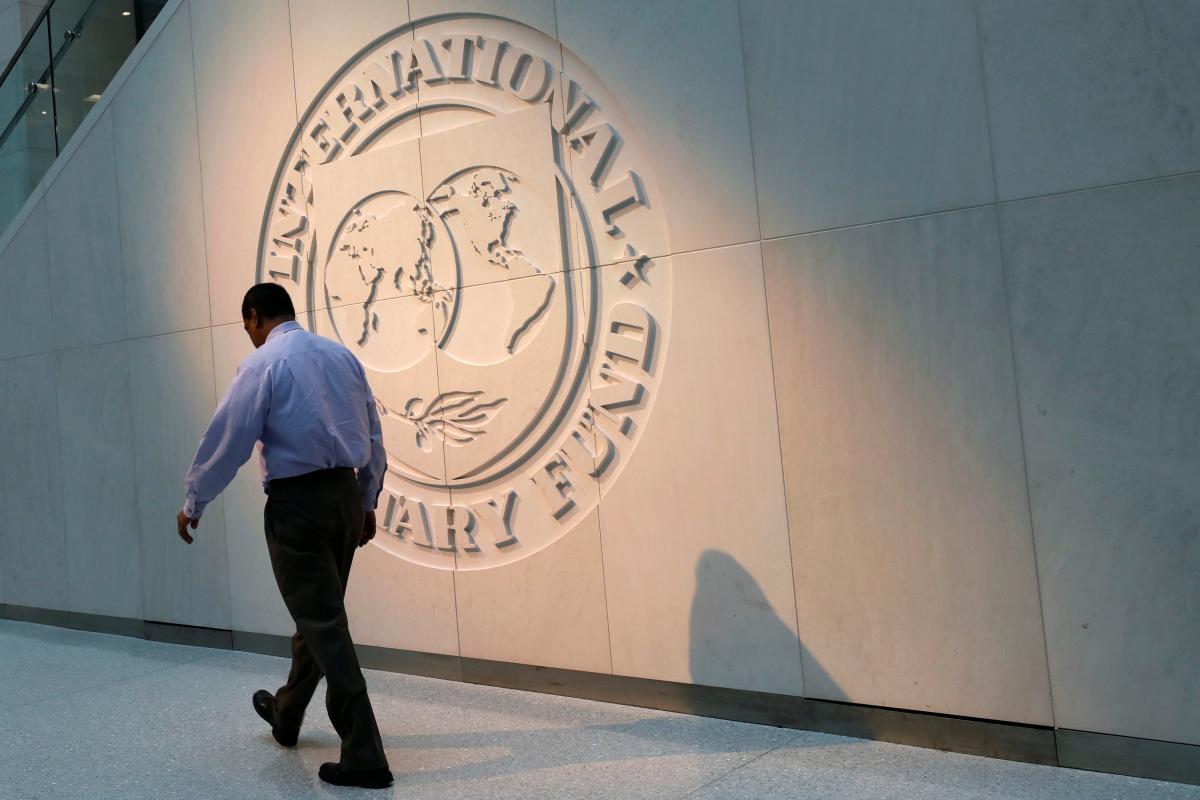
Debt pressure: borrowing again to pay back previous "loans"
The Ministry of Finance is going to borrow in the foreign market, again. They have announced the next issue of Eurobonds. No specifics have been revealed yet about its parameters. Details are being discussed with Ukraine's Western partners. But the main thing is that our country will get into more debts to settle on the previous ones worth billions.
Against the background of peak debt burdens and a pause in a dialogue with financial donors, especially the most important of them, the International Monetary Fund, Ukraine intends to re-enter the external borrowing market. The Ministry of Finance announced the issuance of Eurobonds with a maturity of seven years and, for the first time, entirely nominated in euros.
According to participants of the borrowing market, the organizers of the issue will be BNP Paribas and Goldman Sachs. Meetings with investors that will be held in London, Frankfurt, Munich, and Milan, started on June 10.
By issuing Eurobonds, the government plans to facilitate payments of government debt and reduce extreme pressure for the next few years. Meanwhile, the most difficult years in terms of repayment of billions in obligations is 2019, 2020, and 2021.
This financial maneuver is a normal economic practice internationally. Ukraine has already applied it. In September 2017, for the first time after the 2014–2015 crisis, 15-year sovereign Eurobonds were issued worth $3 billion. In late October 2018, the Ministry of Finance issued two series of Eurobonds – five-year and ten-year ones – worth a total of $2 billion. The success of this mechanism depends primarily on the interest rate. This is, what is paid by the "owner" of the bonds – the issuer of a loan on securities – the owner of these very securities. The lower it is, the more profitable. But it is minimal if the investor trusts the country and does not include risks in the amount of "compensation". Ukraine is not really lucky in this regard.
The rate of return last year ranged from almost 9% to 9.75% per annum, depending on the maturity of the bonds. Moreover, in March of this year, Ukraine increased the sum of the issue of ten-year Eurobonds by another $350 million.
In parallel lines, there is borrowing by placing bonds of the domestic government loan. This six-year instrument is sold at a record 15.85%. The majority of buyers of hryvnia securities were non-residents. But in July-August, they will start exiting the hryvnia-denominated bonds, with the approximate amount of payments for "aid" being the equivalent of $1 billion, with the subsequent conversion of money received by non-residents into foreign currency.
Experts believe that the government’s decision is, in principle, correct as without the funds planned to be received from the placement of the Eurobonds, it will not be possible to pay off the debts painlessly. The main task is to continue to reduce the ratio of public debt and GDP, as well as to promptly resume cooperation with the International Monetary Fund. The latter is a litmus for investors. It is also necessary to diversify the debt portfolio, which is currently by 42% denominated in dollars and only by 9% in euros. The best option is to switch to the hryvnia, which eliminates the risks from exchange rate fluctuations of the national currency.

Some steps in this direction have already been taken. The public debt to GDP ratio is decreasing: in 2016, the ratio was 81.2%, in 2017 it was 72.3%, in 2018 it stood at 63.2%, and in 2019, it is planned to be reduced to 60.1%. According to Finance Minister Oksana Markarova, "the share of the hryvnia in the government debt portfolio is also increasing," although she did not specify the numbers. Now it is very important that the plans of the Cabinet of Ministers do not fail.
Borrowing in a right way
Dragon Capital expert Serhiy Fursa predicts that the Ministry of Finance, in the course of the upcoming Eurobond offering, may attract about EUR 750 million in the foreign market at a rate of 6.5% to 7% per annum.
"These are securities in euros, for which potential demand is lower than for those in dollars, and there is a limited number of investors. But we can expand their circle. Plus, there is a political nuance – the rate is lower than for borrowing in dollars," the expert commented on the situation.
According to him, the funds raised will be allocated for financing the state budget deficit. He does not exclude that by the end of the year, another entry into the foreign borrowing market is possible.
Head of the expert and analytical council of Ukrainian Analytical Center, Borys Kushniruk, emphasizes that, by issuing Eurobonds, Ukraine intends to simplify the task of repaying the national debt, stretch it in time, reduce the burden, and facilitate its maintenance.
"More often, these securities are offered in foreign markets in dollars, and less often – in euros. Apparently, in the framework of consultations, the Ministry of Finance decided to issue bonds in euros. Ukraine conducts all its trade relations and saves funds mainly in dollars. If the euro rises in price against the dollar, we will have to pay extra for the risk associated with this, but if the euro weakens, then on the contrary, we will benefit from this. So there is a long-term exchange rate risk in this decision, but there is also logic. Potentially, the euro zone may well weaken in the future, which means that we will not lose anything," the expert noted.
In his opinion, the main task of this placement is to make borrowing as protracted in time as possible, to relieve pressure on the payment of government debt. Although it is not so big in relation to GDP now, about 60%. By the way, this is one of the best indicators in Europe. The only problem is that its amount payable during the current, next, and 2021 years is quite large. If we extend these payments, even taking into account Eurobonds, then we will be able to repay the national debt without much tension. In this case, there is no need to talk about any default, even if the IMF defers its assistance. There is also no need to cut budget spending, allocating everything for repayments of liabilities.

"But there is another problem. Cooperation with the IMF has now been suspended, although statements are being made that it will continue anyway, but most likely we will not receive help from the main creditor until next spring. And if it is the case, Ukraine will have to pay more on these bonds than if there had been another IMF tranche (then borrowing in the form of Eurobonds would have been cheaper). If the investor does not trust us (and the IMF is an indicator of the country's viability, followed by support from the EU, EBRD, and the World Bank), it always takes at a larger rate. I think the current Eurobond rate will be 8.5–9% per annum in euros. It is very costly. European countries, for example, Italy, borrow at 2-2.5% per annum, although in this country, the debt to GDP ratio is more than 130%," Kushniruk notes.
According to him, now Ukraine should continue the budget policy: "The option chosen by the government – issuing bonds to raise funds – is correct. The main thing is that the policy that the Cabinet of Ministers has been pursuing for several years should continue – the debt to GDP ratio should be reduced, and the accumulation of borrowings in foreign currency – progressively reduced."
Head of the Council of the National Bank, Bohdan Danylyshyn, also called the entry of the Ministry of Finance to the external market with Eurobonds an attempt to expand the debt horizon through longer-term borrowings.
"The amount of attraction will be approximately EUR 750 million and the yield will be 6-7% per annum. The bonds will be redeemed in 7 years; interest payments are usually serviced on an annual basis. It is important that the Ministry of Finance began to attract resources in euros, which allows saving on interest payments, as now a similar loan in dollars would cost 9-10%," the expert noted.
According to him, from a tactical point of view, this is done because in the next few months, there will come major payments on state debt, which the Ministry of Finance should make, and doing this at the expense of the international reserves of the National Bank "is not convenient." Plus, there are big doubts that cooperation with the IMF will be renewed in a relatively foreseeable future.
During the announcement of its intention to enter the foreign borrowing market, the Ministry of Finance did not specify the parameters of the Eurobond issue. Apparently, they are being discussed at meetings with Western investors. Ukraine is represented by Finance Minister Oksana Markarova, Government Commissioner for Debt Issues Yuriy Buts, and First Deputy Minister of Economic Development and Trade Maksym Nefyodov.
We should expect more specific statements from said officials.
Nana Chornaya

